Gotthard tunnel: global media praise a ‘national obsession’
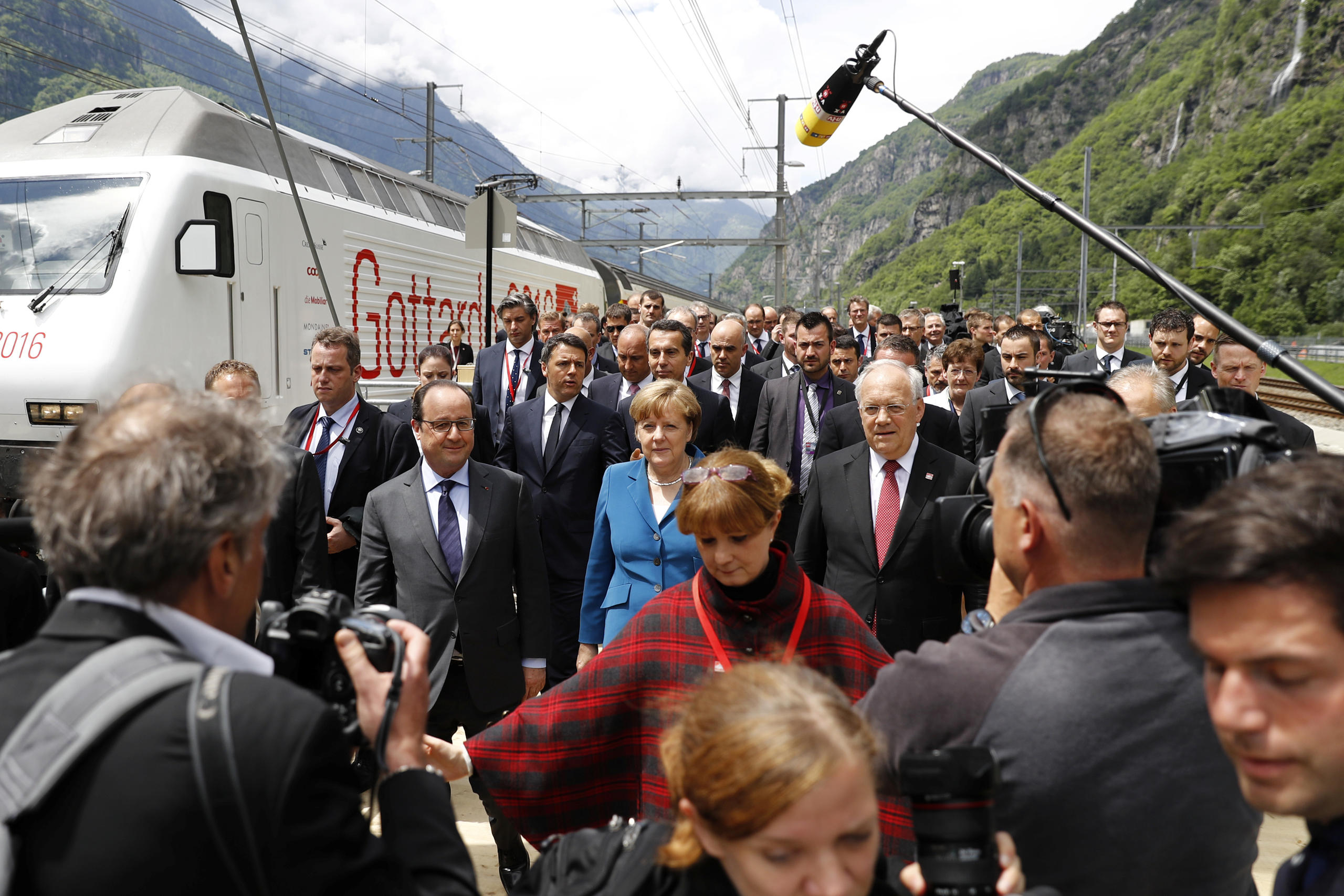
The morning after the official opening of the Gotthard tunnel through the Alps, the world’s longest rail tunnel, newspapers in Switzerland and around the world have lavished congratulations and compliments on a country that, in recent years, has become used to international criticism.
“So much praise is almost embarrassing for us!” was the headline splashed across the front page of tabloid Blick. Like many other papers, Blick’s main photo was of the leaders of Switzerland, Germany, France and Italy all sitting in the train together, relaxed and laughing.
“Joy, pride and tears – this day will never be forgotten,” it continued.
For the Neue Luzerner Zeitung, “the new Gotthard Tunnel is not only an incredible feat of Swiss precision and engineering, it is also a masterpiece of direct democracy [two-thirds of Swiss voters backed the project in a 1992 referendum] and an expression of citizens’ spirit of innovation”.
The Berner Zeitung joined virtually every other paper in pointing out the symbolism of a structure that brings European countries closer together “at a time when Switzerland’s relationship with the EU has never been so open and unclear”.
It added that the main reason for the tunnel was getting freight off roads and onto rail tracks, “but this shift will only work if our neighbours keep their side of the bargain”.
The Nordwestschweiz also focused on the European Union. “Switzerland opened the new tunnel yesterday with plenty of self-confidence. It should look after its interests with Europe with the same self-confidence – not only concerning the approach routes to the tunnel, but also our bilateral relations and the rules of immigration.”
While the majority of papers were in celebratory mood, the Basler Zeitung struck a more equivocal tone.
“Building tunnels is our USP, our purpose, our mission. We’re much better at tunnels than, say, coming up with policies for refugees or energy, buying planes or knowing how to get on with people,” it wrote.
“Yesterday was a great day for our country: tears, tunnels and virtue at Switzerland’s holy mountain,” it continued, before quickly shifting tone again: “but also this celebration will come to an end and the next tax CD is surely just around the corner.”

More
Transport minister gets emotional at Gotthard opening
‘Invisible cathedral’
Newspapers in the French-speaking part of Switzerland were equally full of admiration for the technical achievement and also referred to the political symbolism.
Le Quotidien Jurassien saw the tunnel as a “hyphen between Switzerland and Europe”.
For Le Matin, however, the hyphen was between the north and south of Europe. “It will enable Switzerland to take its place at the heart of the continent”. It said it would also give Switzerland “the chance to shine – discreetly at any rate – since [the tunnel] is not a tower, it’s an invisible cathedral”.
24 Heures echoed the Berner Zeitung: “Europe must once again confirm its desire to transfer as much freight as possible [onto rail]. And here, Switzerland will have to count on Europe – not vice versa.”
‘Insane numbers’
Foreign leader writers also praised the feat of engineering as a model for their own countries.
“Switzerland leaves Germany looking old,” was the headline in Die Welt in Germany. By finishing the Gotthard Tunnel on time, “a small country has shown how to achieve something great”, alluding to the never-ending constructionExternal link of Berlin’s new airport.
Germany’s Frankfurter Allgemeine Zeitung was also self-critical. “Little Switzerland has once again put the rest of Europe to shame with its professionalism.” The country had proved “there is no law of nature according to which costs for large construction projects must multiply”.
In Italy, La Repubblica raved about a “tunnel of records”, describing the construction as running like a Swiss watch and without delays – unable to resist adding, however, that it had only been made possible thanks to workers from 15 countries.
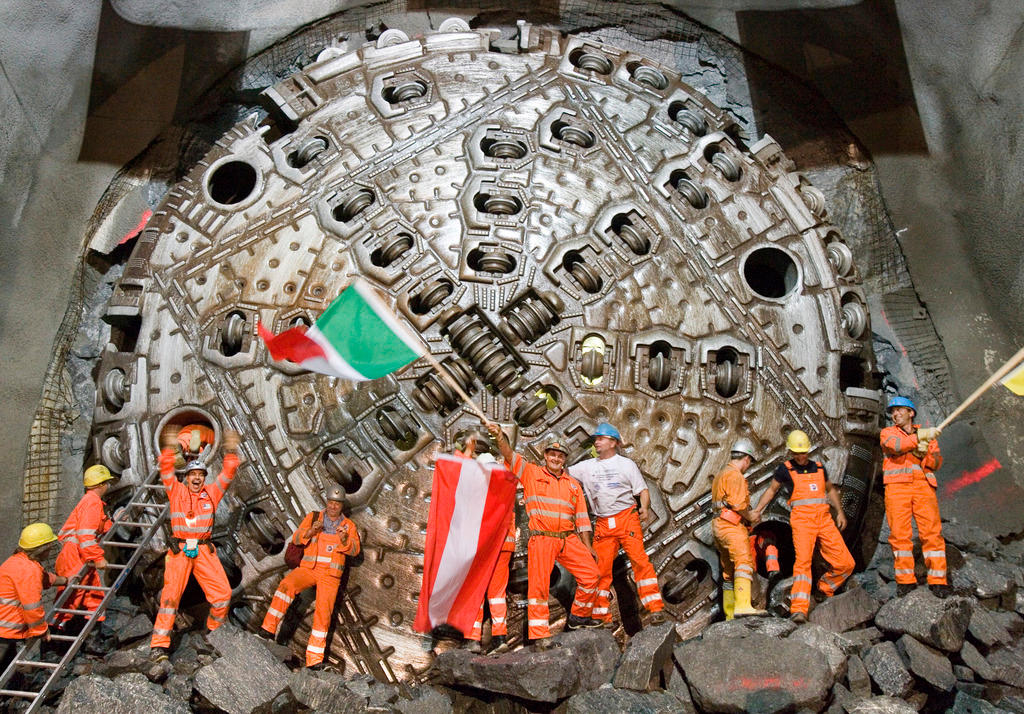
More
The Gotthard Base Tunnel in numbers
French and Spanish media focused on the “insane numbers” of the new alpine pass, as Le Figaro put it.
A correspondent from Le Monde in France who peered into the tunnel said it had reminded him of “a lair of a James Bond baddie”.
‘Something of an obsession’
British newspapers and the BBC also bombarded their readers with facts and numbers, with the Daily Mail tabloid seemingly more excited by the opening ceremony.
“A winged baby, semi-naked dancers and a man with a bird’s nest on his head: how Switzerland decided to mark opening of world’s longest rail tunnel,” it wrote.
“The Swiss have put on one of the most bizarre opening ceremonies in history to mark the completion of the world’s longest tunnel.” To be fair, it also noted that the tunnel’s creation would mean a million fewer lorries on the roads.
For the Wall Street Journal, the event’s “unifying symbolism” seemed somewhat out of step with the times. “Switzerland and other European countries are now faced with a wave of populist unrest, with calls for tightened border controls amid rising numbers of refugees fleeing war and chaos in the Middle East.”
However, the Guardian in Britain noted that “as a symbol of cross-border cooperation, the Gotthard tunnel may only be able to ward off the spirits of populist nationalism for so long: according to recent reports in the Swiss media, politicians are expected to use the grand occasion, coming just weeks before the British referendum on EU membership [on June 23], to rally support for measures to curb immigration”.
For its part, the New York Times reckoned conquering the Alps was “something of an obsession” for the Swiss.
“It’s certainly not easy to explain rationally our emotions for a hole that looks exactly the same for 57 kilometres,” admitted the editor of Blick. “Actually you can’t explain it, you have to feel it.”

In compliance with the JTI standards
More: SWI swissinfo.ch certified by the Journalism Trust Initiative

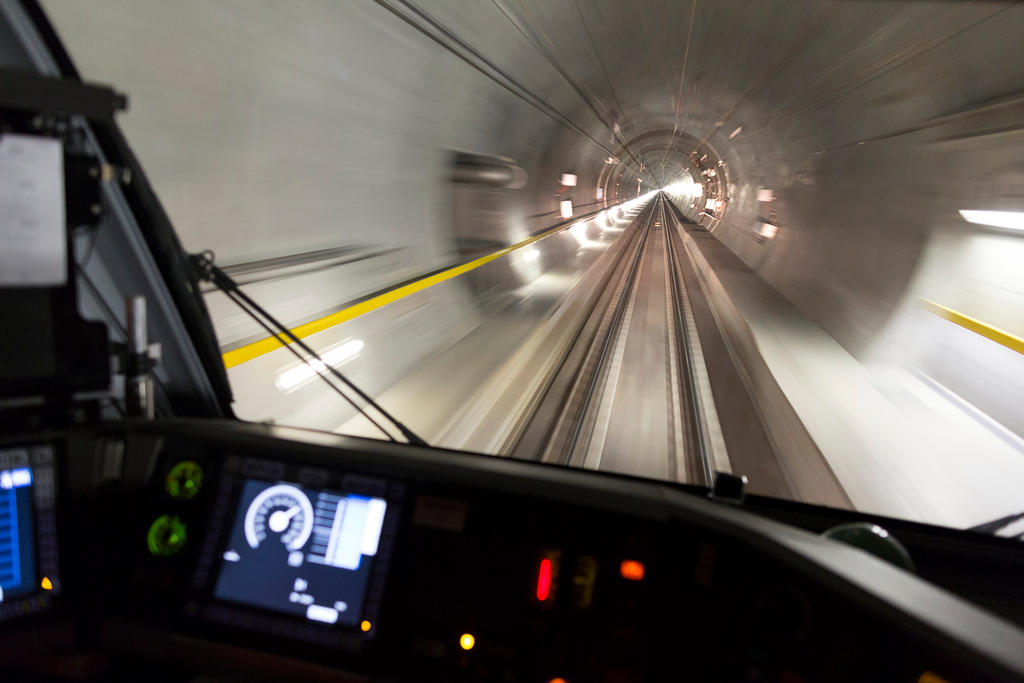
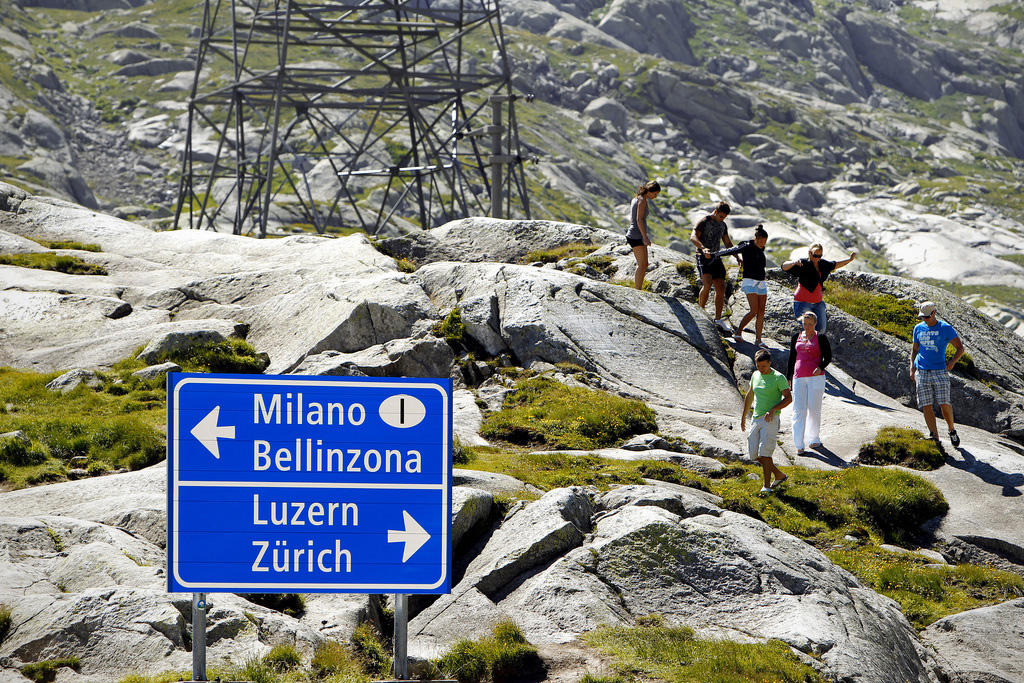
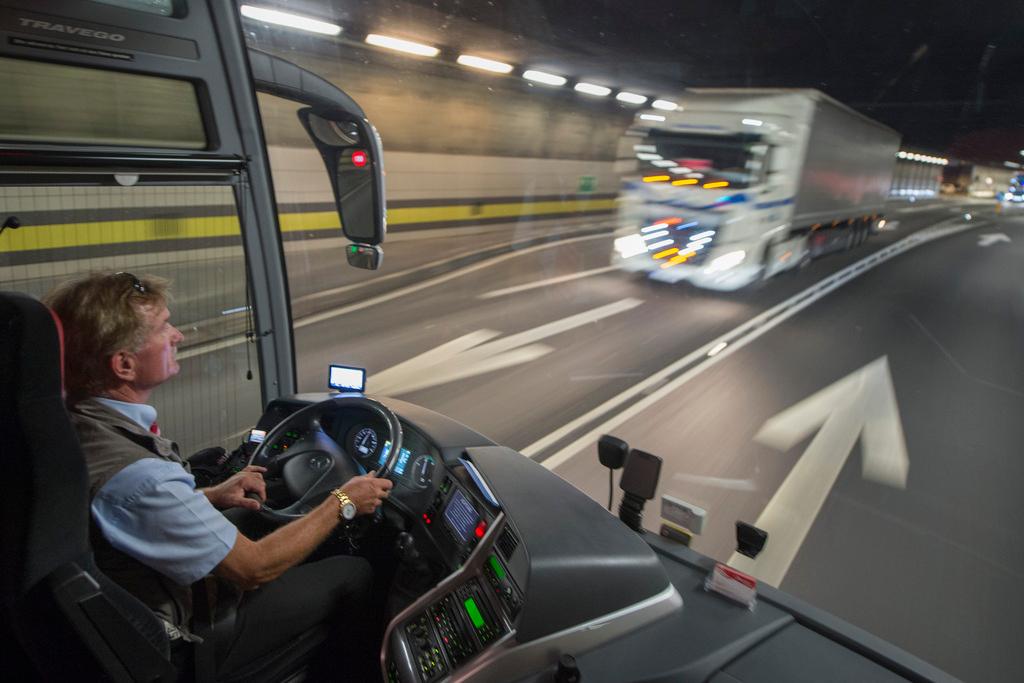
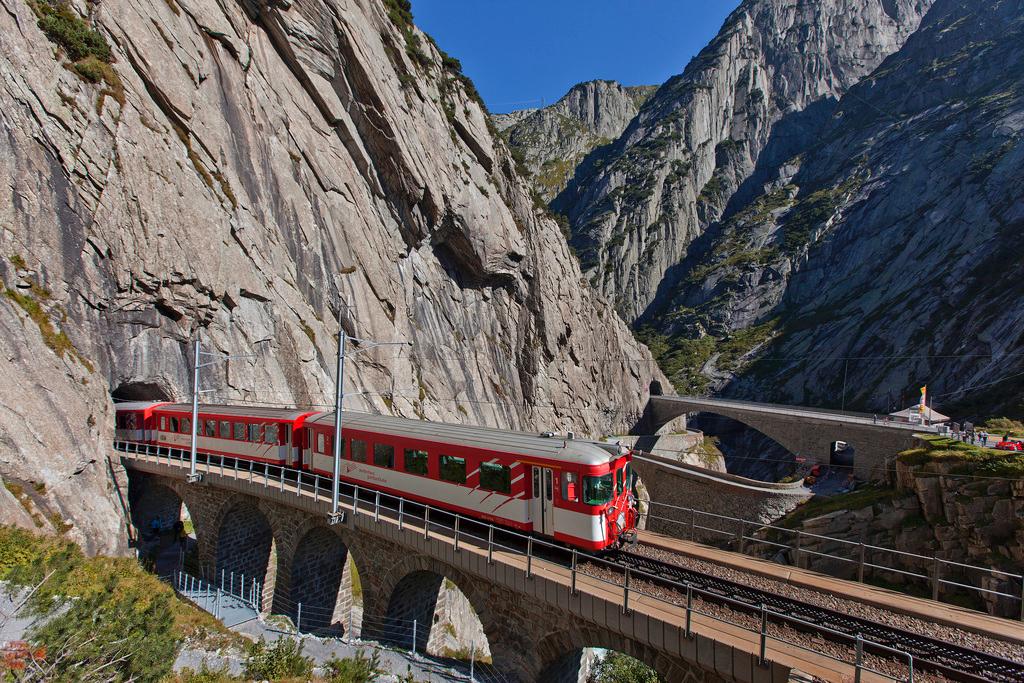
You can find an overview of ongoing debates with our journalists here. Please join us!
If you want to start a conversation about a topic raised in this article or want to report factual errors, email us at english@swissinfo.ch.